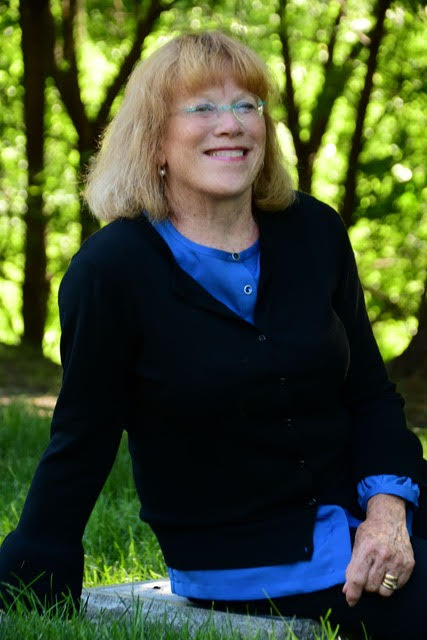Marcia Rogers divides her time between Cedar Rapids and Hyde Park in Chicago and is a freelance writer. As a former North Dakotan, she is excited to begin writing about Heidi Heitkamp at the Institute of Politics.
This past year, as an Iowan now living part-time in Hyde Park in the neighborhood of the University of Chicago, I have had the privilege of attending events hosted by the Institute of Politics. Their forums have brought former presidents, noted journalists, dissidents, and political friends and foes into the world of University of Chicago students, giving direct access to thought seekers by these thought leaders.
I have written about disinformation and misinformation campaigns, interviewed a Nobel Peace Prize recipient, and—being new to the world of writing myself—watched in awe as my favorite byliners brought their written work to life on the stage through vibrant student discourse.
This past Friday, January 20, was another of those “I can’t believe I get to live here” events.
I thought this piece would be about the institute’s outgoing, founding director David Axelrod, and his interview with U.S. Secretary of State Antony Blinken (or as the enthusiastic political student sitting beside me said “a sitting Secretary of State, how awesome is this…”)
But writers often get to change course, as it’s our pen at work, so here I go.
Yes, Secretary Blinken was impressive. His remarks, suitably covered by The Chicago Tribune and the Associated Press following the event, showcased the world security situations Antony Blinken chose to share—as well as those he had to steer away from discussing, because of security concerns. It was a fascinating and impressive exchange between Axelrod and Blinken (two longtime friends) and other Institute of Politics colleagues.
But from my vantage point in the David Rubenstein Forum on campus, I was most struck by the large turnout of 500, mostly students, on a Friday afternoon at 3:00, with some members of the community included. (The University of Chicago is always generous to the neighborhood).
When you sit in the back in the press row (there isn’t a bad seat in the Forum) you can really size up the crowd and its reaction to what is happening. For 90 minutes on a Friday afternoon, Axelrod once again brought the world to this Hyde Park stage. With his folksy and whimsical style, he interviewed a sitting secretary of state as his guest along with other colleagues. For 90 minutes you could hear a pin drop.
While these students were interested in Blinken, they were also there to show thanks and appreciation to Axelrod. He will continue to chair the institute’s Board of Advisors, but after ten years is turning over the helm as director to Heidi Heitkamp, former U.S. Senator from North Dakota.
I went back through my notes from previous forums: former President Barack Obama, U.S. Representative Liz Cheney, Anne Applebaum, Antony Blinken. Each one of them said that internships changed their lives. And changing lives through internship opportunities is exactly what Axelrod set into major focus when he launched the Institute of Politics. Here is a snapshot of what he and the team have achieved over the past ten years:
The Institute of Politics has supported 178 Pritzker Fellows in this resident and visiting fellows program.
Some 2,000 guest speakers have come on campus to have exchanges of thought with students.
The institute supported more than 2,500 international internships for University of Chicago students.
About 1,500 students participated in student-led engagement projects in Chicago and across the country.
Were it not for Axelrod’s earlier, successful efforts in shepherding south-sider Barack Obama to the White House in 2008 (aided by Obama’s Iowa caucus victory), the University of Chicago’s President Bob Zimmer might not have taken the risk to suggest setting up an Institute of Politics on campus in 2012.
Politics and public service are fields fortified by and through relationships. These relationships often begin at the student and intern level and become a force in shaping career paths.
And here in Hyde Park, ten years later at the Institute of Politics, student engagement in political thought and discourse is stronger than ever and building. Today’s interns might become tomorrow’s presidents and prime ministers. A campus took a chance, and Axelrod changed the course of many students’ lives as a result.
One man’s tireless ten-year journey (and that of his team, he would add) was reflected by a “sold out” attendance and emotional standing ovation and the clear love and respect for him felt across this campus and community. In his parting words, Axelrod challenged Heitkamp to continue creating opportunities to build future leaders from these IOP experiences.
Producing thoughtful, future leaders isn’t just the responsibility of one institution. It is incumbent upon all educational institutions to create internship pathways and opportunities for broader public service and civic engagement.

